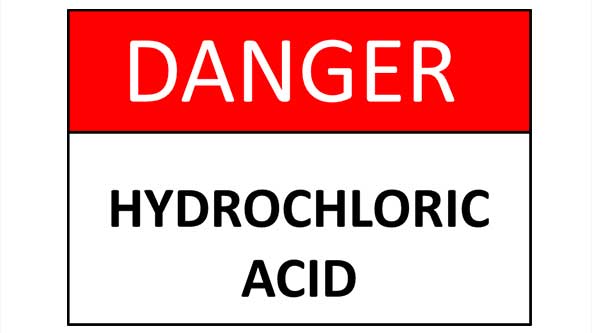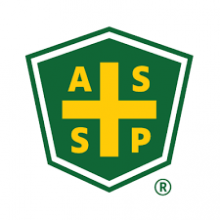What Exactly is Hydrochloric Acid & Where is it Found?
Hydrochloric acid sounds like a scary substance and, in fact, it can be. However, you may be surprised to learn that hydrochloric acid is a common liquid used in several industries around the world. Approximately 20 million tons of hydrochloric acid are produced globally each year, and you can even find it in your own home! These hydrochloric acid safety tips can help you handle this toxic substance safely and appropriately, whether you encounter it at home or in the workplace.
Hydrochloric Acid and Uses & Attributes
Hydrochloric acid is a colorless to light yellow water-soluble liquid with a pungent, irritating odor. Produced as early as the 16th century, hydrochloric acid was historically known as “spirits of salt” and is sometimes called muriatic acid. It is used for a variety of purposes and is available at concentrations from 10 to 34 percent depending on its application. Hydrochloric acid is used for:
- Steel pickling
- Producing organic compounds (for PVC, activated carbon, ascorbic acid, and pharmaceuticals)
- Producing water treatment chemicals
- Regulating water pH
- Leather processing
- Salt purification
- Household cleaners
- Building construction
- Oil well acidizing
- Producing gelatin products
Safety & Health Hazards Associated with Hydrochloric Acid
Hydrochloric acid is a hazardous liquid which must be used with care. The acid itself is corrosive, and concentrated forms release acidic mists that are also dangerous. If the acid or mist come into contact with the skin, eyes, or internal organs, the damage can be irreversible or even fatal in severe cases. The use of personal protective equipment is essential.
How to Handle Hydrochloric Acid Safely
Safety is of utmost importance when handling dangerous chemicals like hydrochloric acid. The Environmental Protection Agency regulates hydrochloric acid as a toxic substance, and it should be treated as such. It is recommended that you wear the following protective equipment when using hydrochloric acid of any concentration:
- Vapor respirator
- Rubber gloves
- Boots
- Full suit
- Face shield
If using hydrochloric acid at your workplace, it is highly recommended you have access to an eye-flush station in case of accidental exposure. You should also review all Hydrochloric Acid MSDS information before making contact.
If using hydrochloric acid household cleaners in your home, follow the label directions and safety instructions closely. (It is usually recommended that you first dilute the cleaner to reduce its concentration.) It is still important to wear protective clothing when using diluted acid, to ensure that it doesn’t come into contact with your skin, eyes, or mouth.
Proper Care for Hydrochloric Acid Exposure
Depending on the concentration of the hydrochloric acid you are working with, accidental exposure can occur as skin contact, eye contact, ingestion or inhalation of acidic vapors. Each of these types of exposure can pose serious hazards to your health and should be managed immediately.
Skin Contact – If hydrochloric acid comes into contact with your skin, flush immediately with plenty of water for at least 15 minutes, and remove any contaminated clothing. In case of serious skin contact, use water, a disinfectant soap, and anti-bacterial cream. Seek immediate medical attention.
Eye Contact – If hydrochloric acid or acidic mists get into your eyes, immediately flush with plenty of water for at least 15 minutes. Seek immediate medical attention.
Ingestion – If swallowed, do not induce vomiting. Seek immediate medical attention.
Inhalation – If you inhale hydrochloric acid vapors or mists, seek fresh air and medical attention immediately.
Hydrochloric Acid Storage and Disposal
Hydrochloric acid should be stored in a cool, dry, well-ventilated area away from sources of moisture. Keep away from incompatible materials such as oxidizing agents, organic materials, metals and alkalis. Hydrochloric acid has the ability to corrode metallic surfaces. Keep container tightly closed and store in a safe place.
Learn more about Hydrochloric Safety from the MSDS Experts
Whether you encounter hydrochloric acid in diluted household cleaners at home or in concentrated forms at your workplace, safety is extremely important when handling this toxic, corrosive liquid. For more information about hydrochloric acid uses, safety, or disposal, search our database of MSDS information.







